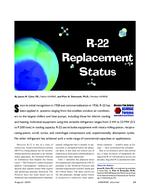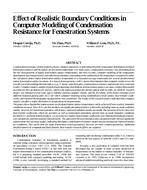In the past 20 years fire protection engineering has seen tremendous growth in the development of new technologies to assist in the battle against unwanted fire. Smoke detector technology, quick response sprinklers, microprocessor based fire alarm systems, smoke management systems, and hydraulic calculations have all had a direct impact on the way we currently design buildings for fire safety. This paper will analyze how current and developing fire protection technology might affect the role of dampers in a total fire protection system.
Faced with ever-increasing choices of fire protection hardware, the building construction industry is learning to apply new technology in a rational and cost effective manner. The tendency has been to focus attention on isolated components rather than evaluate each component as a part of an overall fire protection system. Excessive requirements often result which add to the cost of buildings without significantly improving safety.
ASHRAE members have a primary concern ; to objectively analyze how dampers fit in a total fire protection system. Current issues affecting fire and smoke dampers include building code requirements, standard test procedures, and damper requirements for 1-hour rated partitions. (Underwriters Laboratories uses the term leakage rated damper. For this paper, the term smoke damper will be used to mean the same as leakage-rated damper.) They have evolved historically much as all of our goals for fire protection in buildings have evolved. In such a climate of changing techology and goals, systematic evaluation methods such as Decision Tree analysis are needed to identify the role of dampers in a total fire protection system.
Units: I-P
Citation: Symposium, ASHRAE Transactions, 1986, vol. 92, pt. 1B, San Francisco
Product Details
- Published:
- 1986
- Number of Pages:
- 11
- File Size:
- 1 file , 1.2 MB
- Product Code(s):
- D-SF-86-12-4


